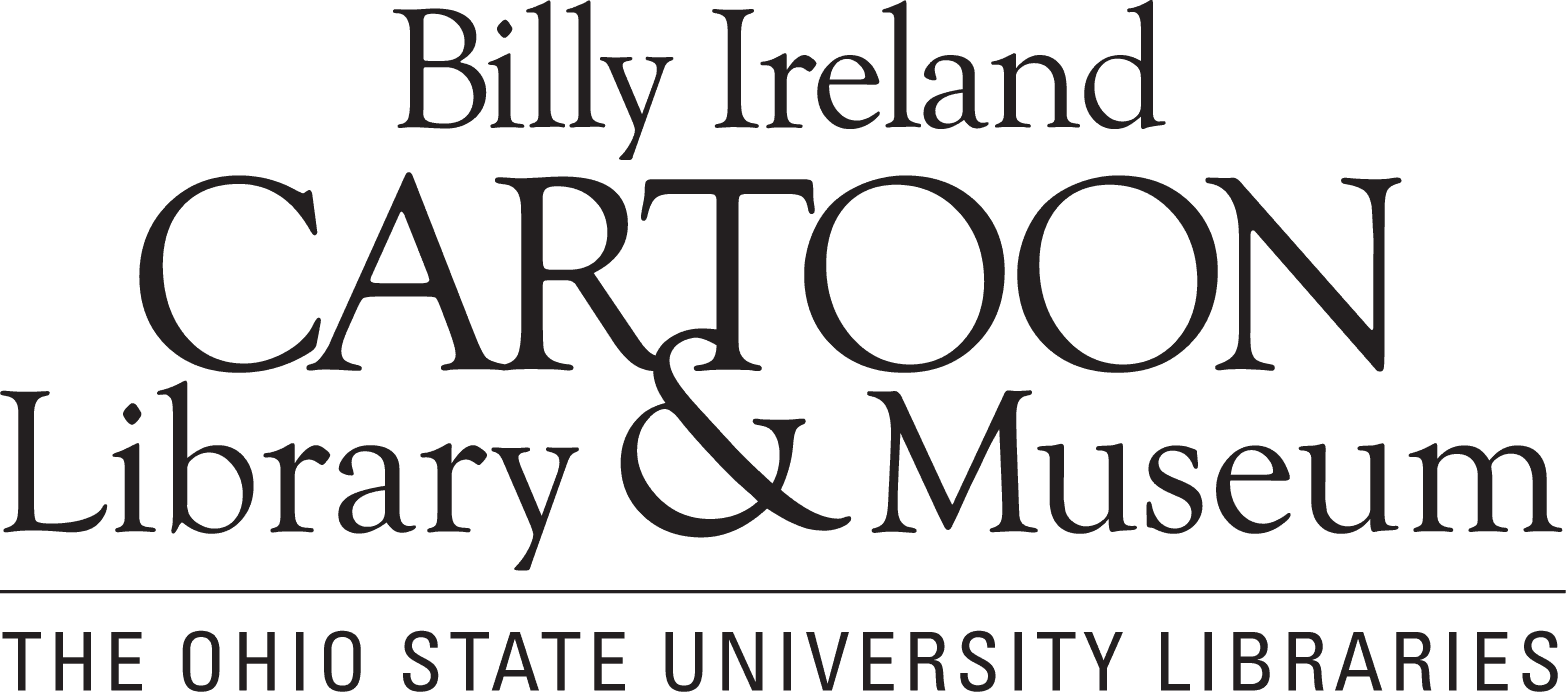In the wake of the incredible 2013 Grand Opening Festival of Cartoon Art, we’ve had nothing but endless good things coming our way, with lots of exciting news to announce soon!
First, a huge thank you again to everyone who attended the Festival- we only look forward to continuing to serve and expand the comics community with engaging programming and powerful exhibits. An additional thanks goes out to our friends at the The Wexner Center for the Arts and Jared Gardner for making this all possible, to all of our generous donors!
If you haven’t checked them out yet, you can see images from the Festival on our Billy Ireland Cartoon Library & Museum Facebook Page.
We’re also happy to announce TWO fabulous new OSU courses on comics that will be taught in the Will Eisner Seminar Room at the new Billy Ireland Cartoon Library & Museum in the new year! If you’re an OSU student and happen to be reading this, there is still a small number of spaces available in these classes so be sure to sign up soon! More info below:
English 2275: Pictures That Tick – Difficult History in Comics
Ben Owen
Spring 2014
Over the last three decades, a number of comics creators have used the lowly status of the comic book to their own advantage. By drawing true-life events in a medium that has no standing or credibility to claim the truth, they have been able to pose profound and urgent questions about how memory and history operate. Turning the gleeful taboo-trouncing of the underground comix movement to autobiographical and historical subjects, these artists have rendered shockingly visible bodies, acts, and histories that have otherwise remained hidden and untellable. The best artists working in comics right now tackle our skepticism towards comics—and towards drawn images generally—head on, posing a set of fascinating and bizarre questions, such as:
- How do you tell a story from Auschwitz using funny animals?
- Why draw war journalism when the war will be over long before you’ve finished drawing?
- What color is your father’s death?
In this class we will seek to understand the varied and formally inventive answers artists have provided to those questions, and more importantly how those answers make us rethink not only artistic form, but also the ways in which we come to know history. New histories demand new forms for telling history, and the works we will look at in this class demonstrate a wide range of experiments in telling.
We will look at prominent works of comics autobiography, journalism, and history by creators such as Spiegelman, Alison Bechdel, Marjane Satrapi, Joe Sacco, Alan Moore, Lynda Barry and Neil Gaiman as well as lesser-known but influential work by Carol Tyler, Justin Green, and Phoebe Gloeckner. Our class discussions will touch on child abuse, survivor’s guilt, queer archives, the breakup of Yugoslavia, Jack the Ripper, September 11, the Iranian revolution, and scary puppets. Looking at these topics will necessarily lead to discussions of memory, justice, morality, the philosophy of history, and the ethics of aesthetic representation.
English 5194: Comics & Time
Jared Gardner
Spring 2014
Time, history and memory is the dominant obsession of graphic narrative. For more than a century–and even before Einstein articulated his challenge to Newtonian time–comics have been exploring alternate models of time and multiple models for imagining it, navigating it, and narrating it. This course will focus on late 20th- and early 21st- century graphic narratives that explore time as a central problem. This seminar is open to graduate and upper-level graduate students.
…Well, I know what classes I’ll be auditing this Spring!





Recent Comments